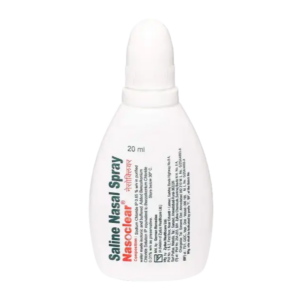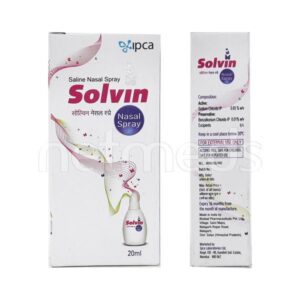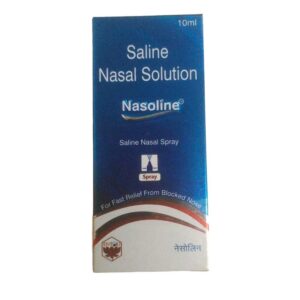SODIUM CHLORIDE + WATER
Sodium Chloride: Sodium Chloride is a widely used drug that is commonly known as salt. It is primarily used for rehydration and to replenish sodium levels in the body. Sodium Chloride is an essential electrolyte that helps regulate fluid balance and maintain proper cell function.
The mechanism of action of Sodium Chloride is relatively simple. When administered orally or intravenously, it dissolves in water and gets absorbed into the bloodstream. The sodium ions in Sodium Chloride help retain water, preventing dehydration and promoting fluid balance in the body.
The dose of Sodium Chloride depends on the purpose of administration and the patient’s specific needs. In oral form, it is commonly consumed as table salt and can be used according to personal taste preferences. The intravenous dose is usually determined by medical professionals and may vary depending on the severity of dehydration or electrolyte imbalance.
Although Sodium Chloride is generally safe, excessive intake or misuse can lead to side effects. These can include fluid retention, high blood pressure, swelling (edema), and electrolyte imbalances. Individuals with certain health conditions, such as congestive heart failure or kidney disease, need to be cautious with their Sodium Chloride intake as it can exacerbate their condition.
It is important to note that Sodium Chloride should be used judiciously and according to medical guidance. In certain instances, such as cases of severe dehydration or electrolyte imbalances, Sodium Chloride may be administered intravenously in a hospital setting under close medical supervision.
Water: Drug Name: Water
Description: Water is a colorless, odorless, and tasteless solvent that is essential for all forms of life. It is commonly used for hydration and as a vehicle for the administration of medications.
Use: Water is primarily used for maintaining proper hydration in the body. It is essential for various biological processes, including temperature regulation, digestion, waste removal, and nutrient absorption. It is also used as a medium for dissolving and administering medications.
Mechanism of Action: Water acts as a solvent, meaning it is capable of dissolving a wide range of substances due to its polar nature. It can carry nutrients, hormones, electrolytes, and medications throughout the body, facilitating their distribution and absorption into cells and tissues.
Dose: The recommended daily water intake can vary depending on factors such as age, sex, activity level, and climate. Generally, adults are advised to consume around 2-3 liters (8-12 cups) of water per day. However, individual requirements may vary, and it is important to consult a healthcare professional for personalized recommendations.
Side Effects: Water is generally safe for consumption and does not have any specific side effects. However, excessive water intake can lead to a condition known as water intoxication or hyponatremia. This occurs when an excessive amount of water dilutes the sodium concentration in the blood, resulting in symptoms such as nausea, headache, confusion, seizures, and in severe cases, coma or even death. It is important to maintain a healthy fluid balance by drinking water in moderation and meeting individual hydration needs.





